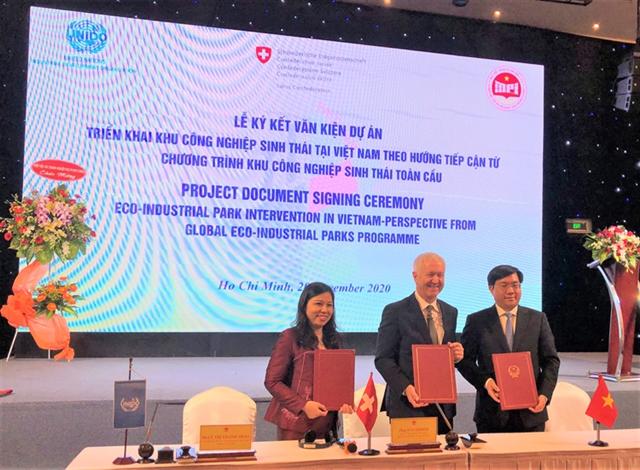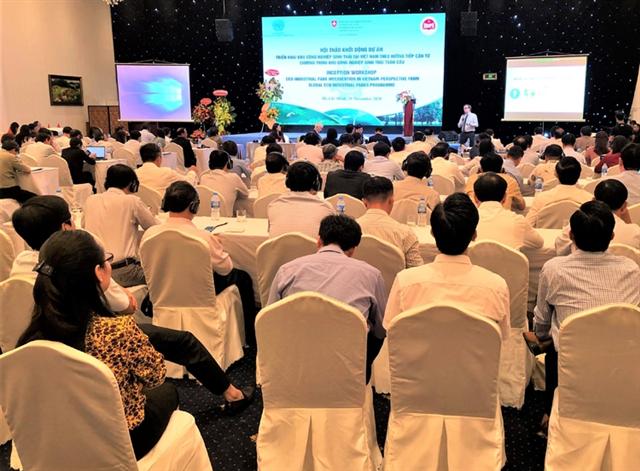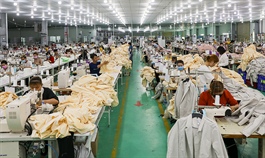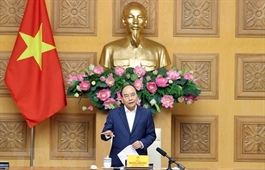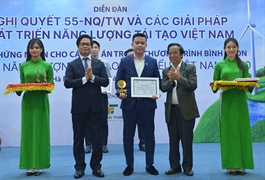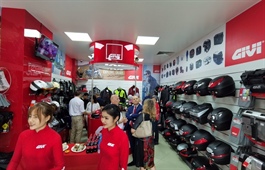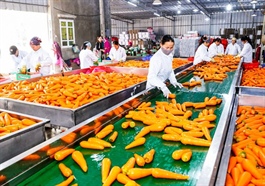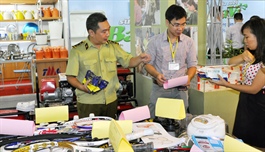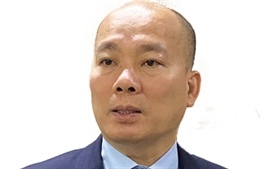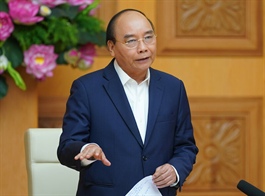New project furthers eco-industrial park initiative
New project furthers eco-industrial park initiative
The Ministry of Planning and Investment (MPI) and the United Nations Industrial Development Organisation (UNIDO) have launched afresh an eco-industrial park intervention towards ensuring sustainable growth.
|
The project, launched on November 20, will be carried out over three years in six localities – Hanoi, Ho Chi Minh City, Can Tho, Dong Nai, Da Nang and Hai Phong.
The US$1,821,800 project will be primarily funded by Switzerland with an ODA of US$1,638,000 routed through the Swiss State Secretariat for Economic Affairs (SECO), and counterpart funding of US$138,800 from the ministry.
The development of eco-industrial parks (EIP) is expected to significantly improve the environmental, economic and social performance of industries in Vietnam. The new project is expected to create a premise for improving EIP-related policies and regulations; and to integrate the EIP model into the legal framework on environment and industries.
While industrial parks have made huge contributions to socio-economic development in Vietnam, they are mired in environmental challenges and a more sustainable model has been identified as an urgent need. The model has to conform with the national Strategy for Green Growth, the government’s commitments to achieving the UN Strategic Development Goals by 2030 and the Paris Agreement on Climate Change.
Trần Duy Đông, Deputy Minister of Planning and Investment, said transforming the model of industrial parks towards ecological and sustainable development is a global trend.
Demonstrated impacts
In the 2014-2019 period, the ministry had cooperated with a number of donors including the Global Environment Fund (GEF), SECO and UNIDO to pilot the eco-industrial park initiative that impacted policy development and demonstrated innovative technologies and practices. The EIP model is mentioned in Decree 82/2018/ND-CP dated 22 May 2018 on the management of industrial zones and economic zones.
Various solutions for resource efficiency, cleaner production and industrial symbiosis were implemented under the pilot initiative.
These led to an avoided annual demand of over 22,000 MWh of electricity, 600,000 m3 of freshwater, 140 TJ of fossil fuel and nearly 3,600 tons of chemicals and waste, not to mention an avoided emission of 32 kt of CO2 every year.
|
Nationwide replication
The latest project, titled “Eco-industrial Park Intervention in Vietnam - Perspective from the Global Eco-Industrial Parks Programme,” follows up on successful implementation of the pilot initiative. It will lay the foundation for replicating the model nationwide.
The project has 2 components: enhancing policies and instructions for the implementation of EIPs; and implementing technical interventions to transform selected industrial parks into EIPs.
It will help improve the legal framework and develop information and technical database to connect businesses and support implementation of solutions to transform industrial parks into EIPs.
Ivo Sieber, Swiss Ambassador to Vietnam, said that his country was “proud to partner with UNIDO in promoting resource efficiency and cleaner production solutions in Vietnam. The viability and benefits of an eco-industrial park model will contribute to improving the economic, environmental and social performance of industries in Vietnam - which is very responsive to the government’s vision of a green economy.”
The Swiss envoy also reaffirmed Switzerland’s commitment to support Vietnam in its efforts to achieve a sustainable and inclusive economy.
Thao Le, UNIDO’s Vietnam Country Representative, said international experience has shown that the economic, environmental and social benefits gained from eco-industrial park are substantial and varied, far exceeding those from normal business.
Specific outcomes
The new project aims to support the completion of guiding documents for implementing the eco-industrial park model.
It will continue to promote the deployment of eco-industrial park solutions at: Dinh Vu Industrial Zone (DEEP C I - Hai Phong); Hoa Khanh Industrial Zone (Da Nang); Amata Industrial Zone (Dong Nai); Tra Noc Industrial Zone 1 & 2 (Can Tho); and Hiep Phuoc Industrial Zone (HCMC).
At the inception workshop for the project, Bruno Jaspaert, General Director of Deep C Industrial Zones, made a presentation titled “Developing the EIP model in Hai Phong City - a driving force from private sector.” He said Deep C’s implementation of the model can offer practical strategies for its further development.
Jaspaert said he believes that investors will prefer to choose the EIP model, recognizing it as a necessary and essential trend to achieve sustainable industrial development.


